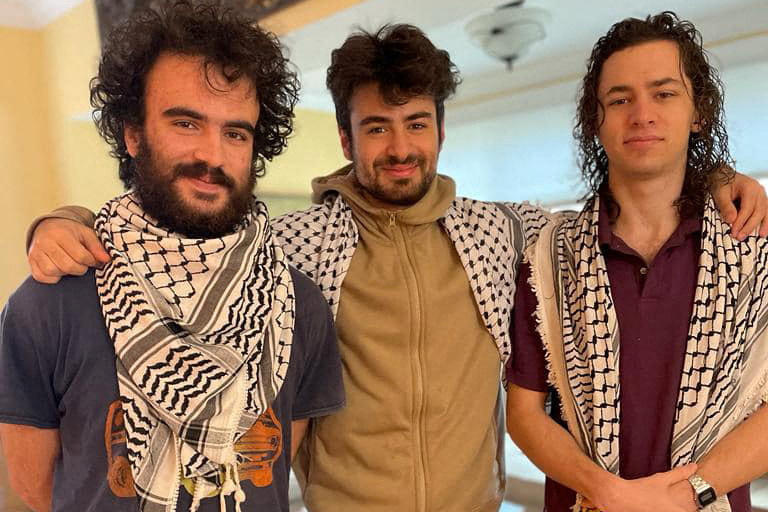The Price of Cultural Identity and Activism

By: Arab America Contributing Writer
Introduction
In today’s world, many causes are emerging, and taking a stand seems inevitable. Opinions are formed through the media, studies, researching and other sources, sometimes without us even realizing it. . Individuals may find themselves associated with a particular viewpoint merely due to aspects of their identity, ethnicity, or religious affiliation, sometimes without conscious intent. Yet, as activism gains momentum, a paradox emerges—Is the cost of activism and the potential hardships it may bring, worth the pursuit of a just society? This article looks at both sides of activism, examining the reasons people support it and the reasons some might chose to stay silent in the face of injustice.
Reasons to Not Participate in Activism:
Participating in activism, especially when supporting the ‘underdog’ cause, can pose more risks to an individual than benefits to the cause. The fear of losing jobs, facing expulsion from colleges, or having scholarships revoked, amongst other serious consequences, is a real concern. The rise of doxing, where personal information is publicized to stop activism, is prevalent, as seen in the case of those supporting Palestine. Individuals, especially those participating in college protests, are finding their images circulating on social media or even displayed on billboards, as a tactic to silence voices.
Worse yet, displaying one’s identity during times of crisis and conflict can lead to tragic consequences. The alarming reality is that individuals are losing their lives simply for being associated with a particular identity. Take, for instance, the heartbreaking case of six-year-old Wadea Al Fayoume, killed in Chicago by his landlord for being Palestinian. Similarly, this past weekend witnessed the senseless shooting of three Palestinian college students who were targeted solely for expressing their cultural identity by wearing a kufiyyah. These incidents illuminate the dark side of activism, where the pursuit of justice comes at an unthinkable cost. Notably, these four individuals weren’t even protesting but were targeted solely for their identity which has been a topic of tension in the past few months.
One other prevailing argument against activism is the belief that an individual’s absence from a protest or failure to vocalize their ideologies will not make a difference. This sense of powerlessness discourages many from taking a stand, creating or maintaining a cycle of silence.
Reasons to Participate in Activism:
Amidst the reasons to abstain from activism, the prisoner’s dilemma comes to the forefront. This classic scenario in game theory tackles the challenge that individuals face when they must decide whether to act in their own self-interest or cooperate for a collective benefit. In activism, this dilemma is crucial. If everyone believes that their individual contribution is inconsequential and refrains from participating in protests, boycotts or other forms of activism, the collective goals will remain unattained. Activism relies on the understanding that every voice, no matter how small it might be, contributes to the greater chorus of change. Waiting for others to act may create a cycle of inaction, stalling progress forever.
Furthermore, concealing one’s identity for the sake of safety contradicts the very principles upon which developed nations are built—freedom of speech, expression, and identity. The unjust expectation that individuals should mask their identities or peaceful ideologies to conform to the majority undermines the essence of a democratic society. Pride in one’s identity should extend beyond the four walls called home, especially when home is under the threat of destruction. In times of war and crisis, sometimes the easiest, simplest, and most peaceful way to show support is through embracing the oppressed’s identity. Whether it’s through clothing choices, peaceful chants and songs, or more, this should be allowed and done without fear of harassment or even violence.
Finally, individuals should have the secure right to express their identity proudly, even in the face of adversity. Hate crimes should never be accepted as a method of silencing, and individuals should not be intimidated by fear. In the face of these horrible incidents, individuals should not pull back but rather, rise above. Instead of intimidating them, these horrific occurrences should serve as a catalyst for the stronger support of their cause. The very things people fear should not only reinforce their dedication but also inspire a collective commitment to stand firmly against injustice.
Conclusion:
The paradox of activism lies in the balance between the potential hardships that may come with advocating and the necessity of taking a stand for a just society. While abstaining from activism might seem like a safe choice, it creates a cycle of inaction and slows the collective progress toward positive change. Conversely, participating in activism requires courage, as the potential consequences are real and, at times, tragic. Finally, we owe it to the people going trough the hardships and the people who died while advocating for them to not stay silent and keep fighting for human rights and fairness.
Check out Arab America’s blog here!









